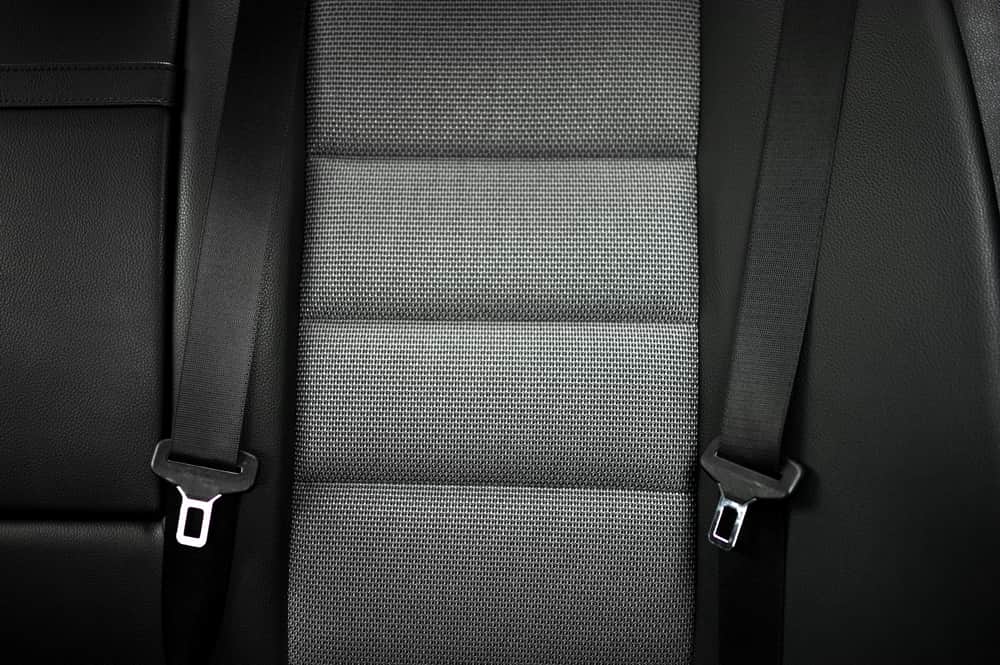Aug 2, 2024
How Old Do You Have to Be to Sit in the Front Seat in Florida?
At AccidentLawFirm.com, we specialize in personal injury and accident law, providing expert legal representation to clients across Florida who have experienced catastrophic injuries. Our team is dedicated to ensuring that victims of car accidents receive the justice and compensation they deserve. Understanding the legal requirements for car seat safety, including the age at which a child can sit in the front seat, a booster seat, and a rear-facing car seat, is crucial for preventing injuries and fatalities.
In this blog post, we will delve into Florida’s car seat laws, highlight our experience in handling car accident cases, and offer valuable advice on child safety in vehicles. For more information on our services and advice on hiring a Miami car accident lawyer, visit our car accident page.

When Should a Child Be in a Rear-Facing Car Seat, and When Can They Sit in a Booster Seat?
Child Car Seat Laws for Sitting in the Front Seat
In Florida, child car seat laws do not specify a particular age at which a child can sit in the front seat. However, the general recommendation from safety experts and organizations like the National Highway Traffic Safety Administration (NHTSA) is that children under the age of 13 should ride in the back seat and always wear a seat belt. This recommendation is based on the fact that the back seat is statistically safer for children in the event of car accidents.
Car Seat Exceptions and Considerations for Child Safety
While child car seat laws don’t specify a strict legal age limit, there are several car seat and booster seat considerations and exceptions that parents and guardians should be aware of:
- Airbag Safety: Front airbags in a motor vehicle are designed to protect adults in a crash but can be dangerous when kids sit in the front seat. The force of an airbag deployment can cause severe injuries to a child, especially if they are not properly restrained.
- Size and Weight: Children who are smaller in size and weight are at greater risk of injury from airbags and seat belts designed for adult front-seat passengers. It is essential that children riding in the front seat fit properly in the passenger seat and that the seat belt fits correctly. This will protect them from serious injury in the event of motor vehicle accidents.
- Exceptional Circumstances: In some cases, it may be necessary for a child to ride in the front seat, such as when the vehicle does not have a back seat or if all available back seats are occupied by younger kids in child safety seats.
Importance of Compliance with Florida’s Car Seat Laws
Penalties and Consequences for Non-Compliance
Compliance with Florida’s car seat laws is crucial not only for the child’s safety but also for avoiding legal penalties. Florida law requires that:
- Children aged 5 and under must be secured in federally approved car seats with a proper lap belt, safety belt, and/or shoulder belt.
- Children aged 0-3 must use a separate carrier or a vehicle manufacturer’s integrated child carseat.
- Children aged 4-5 must use a separate carrier, an integrated child seat, or a booster seat.
Failure to comply with child car seat laws can result in fines and points on your driver’s license. More importantly, non-compliance increases the risk of child injuries or death in the event of a car accident.
Expert Advice on Ensuring Child Safety in Vehicles
At AccidentLawFirm.com, we emphasize the importance of following best practices for child safety in vehicles.
Here are some expert tips:
- Use the Right Car Seat: Ensure that you are using the appropriate car seat or booster seat for your child’s age, weight, and height. Follow the manufacturer’s instructions for installation and use, and always use the seat belt.
- Proper Installation: Make sure the car seat is installed correctly. Many local fire departments, police stations, and hospitals offer free car seat inspection services.
- Rear-Facing Seats: Keep your child in a rear-facing car seat for as long as possible, as it provides better support for the head, neck, and spine in the event of a crash.
- Booster Seats: Use a booster seat until your child is tall enough to sit in the car’s seat with the seat belt fitting correctly across the chest and lap.
- Back Seat is Best: Whenever possible, have your child ride in the back seat with a seat belt until they are at least 13 years old.

Successful Child Car Seat Cases
AccidentLawFirm.com has a proven track record of achieving positive outcomes for our clients. For example, we recently represented a family who lost a loved one in a drunk-driving accident. Through meticulous investigation and negotiation, we secured a substantial settlement that provided financial relief and a sense of justice for the grieving family. Additionally, our compassionate approach helped them navigate this difficult time with support and understanding.
Contact a Miami Personal Injury Lawyer from AccidentLawFirm.com for Legal Representation in Your Child Passenger Safety Case
Understanding Florida’s car seat laws and the age requirements for sitting in the front seat is essential for ensuring the safety of young passengers. At AccidentLawFirm.com, we are committed to helping families comply with these laws and providing expert legal representation in the event of a car accident.
Our team is dedicated to protecting your rights and securing the compensation you deserve. If you have any questions or need legal assistance, do not hesitate to contact us. For more information on our services, visit our car accident page.
By following best practices for child safety in vehicles and seeking expert legal advice when needed, you can help prevent injuries and ensure the well-being of your loved ones. AccidentLawFirm.com is here to support you every step of the way. Please remember that at AccidentLawFirm.com, Our 5-Star Reviews Are No Accident.
